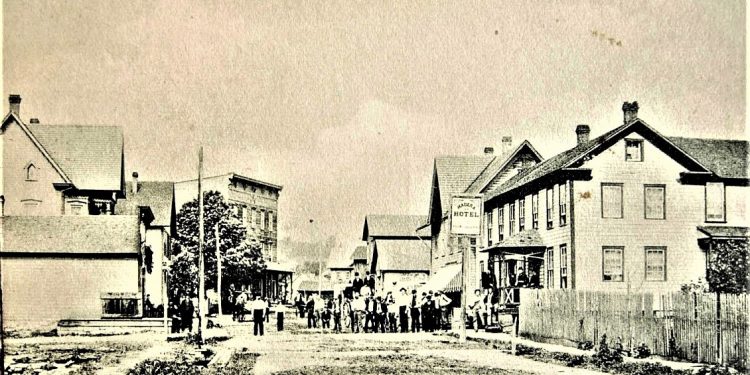Madera, in Bigler Township, is one of the oldest-settled sites in Clearfield County. There was once a First Nations Peoples village situated at the confluence of Muddy Run and Clearfield Creek.
The site was at the far end of the baseball field and behind the old school. Early European settlers unearthed native artifacts there.
James Alexander, a Revolutionary War veteran, was granted the land around present-day Madera as payment for his wartime service.
He and his surveyor friend, John Reed, explored his land holdings in October of 1784. They were surprised to find the family of Captain Edward Ricketts, another Revolutionary War veteran, in the same proximity. Their claims evidently overlapped.
James’ son, William Brown Alexander, moved his family to his father’s land in 1809 and named the ensuing village Madera, a Spanish word for wood.
The name fit well as Madera became a center of the lumber and rafting industry that saw rafts and logs floated down the windings and sharp turns of Clearfield Creek and into the Susquehanna River in Clearfield.
Madera, the village, with its lumber-based economy, grew rapidly. That base was later reinforced by the opening of underground mines that produced fine veins of Moshannon coal.
Stores and businesses prospered. A well-run school system was set in place. The remnants of the last Madera school building were demolished in 2014 in order to make way for the community park that is nice addition to today’s Madera.
Four church denominations; Orthodox, Presbyterian, Roman Catholic and United Methodist became Madera’s faith anchors for generations.
Both the Pennsylvania and the New York Central Railroads operated in Madera and had stations there. They ran on the two banks of Clearfield Creek and transported coal to Clearfield and beyond.
Madera had its tragedies. The entire downtown section was burnt out in a devastating fire in January of 1921. Much of the street was rebuilt.
Madera has suffered losses in recent years. In the past decade, the post office, a store, the bank, the Veterans of Foreign Wars post and the Catholic Church have all closed.
Those losses have shaken Madera’s once vibrant community identity. Nevertheless, a few small businesses, three churches and the Madera Fire Company’s new and modern fire hall still thrive. That has been a common story throughout rural Pennsylvania.
The 1889 postcard shows a gathering on the muddy and rutted Main Street that is today part of state Route 53. A hotel once stood near where the present Madera Moose Club is located and the upper portion of one of the street’s larger homes is also shown.



